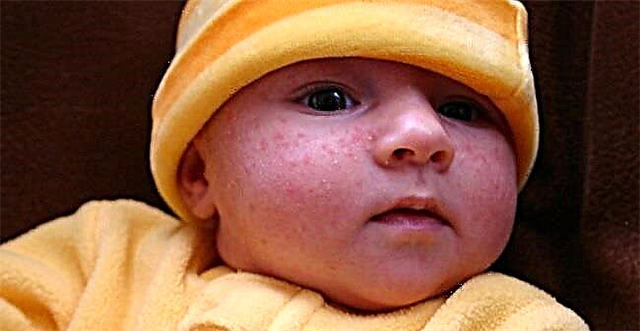The normal functioning of the vocal apparatus is just as important for the development of the child as the ability to fully move and move. When stuttering occurs, there is a huge danger that your baby will not only be able to learn the world around him more slowly than other children, but will also become more distant and withdrawn. If you notice the first signs of stuttering in your child, do not let the situation take its course.

Stuttering - it is a speech disorder characterized by frequent repetition or prolongation of sounds or syllables or words; or frequent pauses or indecision in speech, breaking its rhythmic flow. The diagnosis is made when these symptoms are significant. In the domestic speech therapy literature, there is a simpler, but only generalizing the previous ones, definition of stuttering as "a violation of the tempo-rhythmic organization of speech, caused by the convulsive state of the muscles of the speech apparatus." (source https://ru.wikipedia.org/wiki/Stuttering)
The first signs of stuttering
When stuttering, almost all children behave the same way. The main task of parents is to recognize the first alarm bells in time and prevent further development of the problem. The main signs of stuttering include the following behavioral features:
- Stuttering is almost always accompanied by tension, anxiety and fear of speech;
- When stuttering, unnatural movements, facial grimaces or tics are possible, with the help of which the stuttering person tries to overcome the stuttering;
- The child can pronounce the first syllables for a long time or repeat the same word several times;
- The child cannot concentrate for a long time, suddenly breaks off his speech, becomes silent;
- At the beginning or in the middle of a sentence, between words, unnecessary sounds "A", "O", "I" are often repeated;
- The child often stops and thinks over every word;
- Shallow, irregular, clavicular or chest breathing, discoordination of breathing. The baby begins to speak after a full breath or on inhalation;
- Involuntary movements during speech - blinking, swelling of the wings of the nose, twitching of facial muscles;
- The use of speech tricks in order to conceal a defect - smiling, yawning, coughing;
- The kid begins to use gestures instead of words.
Stuttering occurs regardless of age, but most often occurs in children aged 2 to 6 years, when language skills are being developed. Boys are three times more likely to stutter than girls. Sometimes a relapse of stuttering occurs in adolescents aged 15-17 years, most often it is associated with the onset of neuroses.
Psychological features of stuttering
- shyness and embarrassment in the presence of people;
- excessive impressionability;
- the brightness of fantasies, increasing stuttering;
- relative weakness of will;
- a variety of psychological tricks to eliminate or reduce stuttering;
- fear of speaking in the presence of certain people or in society.
The consequences of stuttering
- Violation of social adaptation;
- Decreased self-esteem;
- Logophobia - fear of speech;
- Sound phobia - fear of uttering a separate sound;
- Aggravation of the speech defect.
Causes of stuttering
Stuttering can appear quite unexpectedly. But any type of stuttering in absolutely every case has its own cause. It is this reason that must be found as soon as possible, since the further success of the treatment will depend on this.
- Fright;
- Postponed meningitis or encephalitis;
- Diabetes;
- Frequent insomnia and enuresis;
- Physical inactivity and fatigue;
- Prolonged stay in a tense neurotic state;
- A sharp change in the environment (moving, long trip);
- Excessively strict attitude of parents towards the child;
- Disturbances in the work of the central nervous system;
- Heredity;
- Head contusion, concussion;
- Poor adaptability to society;
- Excessively late or excessively early development of speech;
- Disruption of the normal functioning of the central nervous system;
- High susceptibility to colds.
In total, it is customary in medicine to distinguish 2 main types of stuttering:
- Neurotic - occurs as a result of psychological trauma, shock (for example, fright or stress; this form of the disease is usually easy to correct) or due to excessively increased speech load. This type of disorder affects mostly impressionable and vulnerable children.
- Neurosis-like - often develops with damage to the nervous system, which can be inherited or become a consequence of intrauterine growth disorders.
By the nature of seizures, stuttering happens:
- Tonic, associated with a sharp hypertonicity of the muscles of the lips, tongue, cheeks, leading to a pause in speech.
- Clonic - characterized by repeated contraction of the articulatory muscles, and leads to the repetition of a single syllable or sound.
- Tonic-clonic.
- Clono-tonic.
- Articulating.
- Voice.
- Respiratory.
- Mixed.
It is necessary to seek help from a specialist immediately after you notice signs of stuttering in your baby. In the early stages, the problem can still be fixed quickly. Therefore, do not postpone going to the doctor until later, the doctor will help determine the type and type of disorder, and will also prescribe an effective treatment.
Why does the child stutter:
Helping the child
If you have stuttering, you need to visit several doctors at once, namely speech therapist, psychologist, neurologist... After a thorough examination and excluding symptoms that are not related to the disorder, you can begin a full-fledged treatment.
With a neurotic type of stuttering, the doctor prescribes special therapy, which should reduce exposure to stress and violent emotions. This will help to find the appropriate approach to the child and teach the parents to communicate with him correctly.
With neurosis-like stuttering, medication is necessary, combined with a visit to a psychologist. For the result to be noticeable and stable, long-term treatment is necessary, which will be accompanied by the maintenance of comfortable conditions in the place where the child lives.
When treating stuttering, you must adhere to the following doctor's recommendations:
- Create a comfortable home environment for your child. Make sure that the baby is not upset and does not provoke negative emotions, exclude cartoons and aggressive games;
- Pay special attention to the calm atmosphere in the family - the child should not hear screams, quarrels, experience punishment, see sudden movements and gestures;
- Communicate with your baby in calm tones, speak clearly and legibly;
- Never tell your child that he or she is saying something wrong or saying something;
- Read more children's fairy tales to the child (the influence of fairy tales on the child). Do not read scary tales at night, as this provokes a feeling of constant fear: fear of seeing Baba Yaga, devil, devil;
- Get a pet in the house. Thus, the baby will stop feeling lonely and depressed, and will make a real friend;
- Speak with a stutterer clearly, fluently (without breaking one word from another), take your time, but do not pronounce words in syllables or in a chant;
- Try to bring your baby closer to balanced, well-speaking peers so that he learns to speak clearly and expressively;
- You can not involve a stutterer in a game that excites and requires speech performances from the participants;
- If the baby does not want to communicate with people or with his peers on the playground at some point, do not force him to do so.
Older children need deeper treatment that includes prevention of personality distortion. This therapy is carried out by a psychologist so that the baby does not feel restless and does not experience complexes because of his problem. If this therapy is not used, the child may develop a fear of talking and being surrounded by people.
Preventive measures
To prevent the development of possible stuttering or to consolidate the effect obtained after treatment, it is necessary to follow the following preventive measures:
- Create the ideal daily routine for your little one with plenty of time to play, walk and sleep. At the age of 3 to 7 years, a child needs at least 10 hours of sleep at night and 2 hours of sleep. Daytime sleep is simply necessary, since it has a positive effect on the psycho-emotional state of the baby.
- Do not allow to watch programs and cartoons that do not correspond to your child's age category and can cause unpredictable emotional outbursts.
- Do not overload the baby with new experiences (reading, movies, watching TV) during the period of remission after treatment.
- Do not overwhelm your child by forcing him to memorize entire poems to show off to friends or parents in kindergarten.
- When punishing a child, do not leave him alone in a dark room, as there is a high risk of developing obsessive fear. Better leave the baby without sweets or without a favorite toy if he is guilty.
- Involve your child in music or dancing, this contributes to the setting of the correct speech breathing, rhythm, tempo, and so, the baby will be liberated and become more self-confident. Singing lessons are helpful.
[sc name = ”ads”]
Stuttering in children is a fairly serious problem, but it can be completely eliminated if you pay attention to it in time and go to the right specialist for help.
What should you do if your child starts to stutter?
SDK: Classes with a speech therapist: stuttering
Doctor Komarovsky, together with speech therapist Victoria Goncharenko, will find out how parents should act if their child has a speech disorder: which doctor to go to, which one to choose, what to do with the baby. Also, Evgeny Olegovich and his guest will answer the audience's questions, describing the algorithms for the behavior of parents with children who have stuttering.



